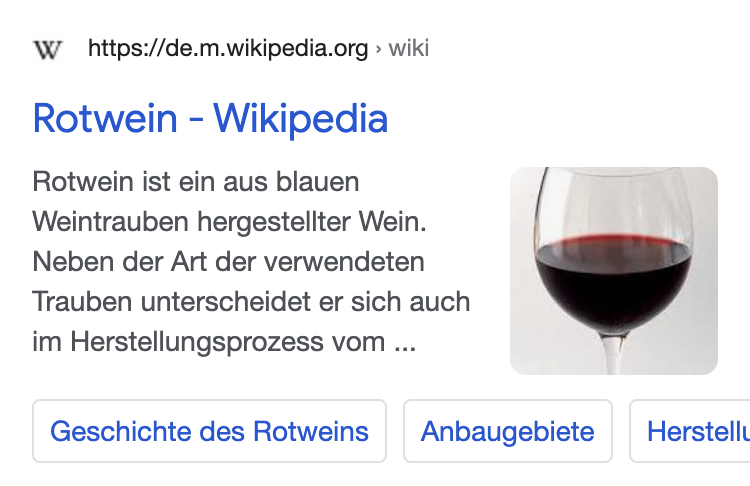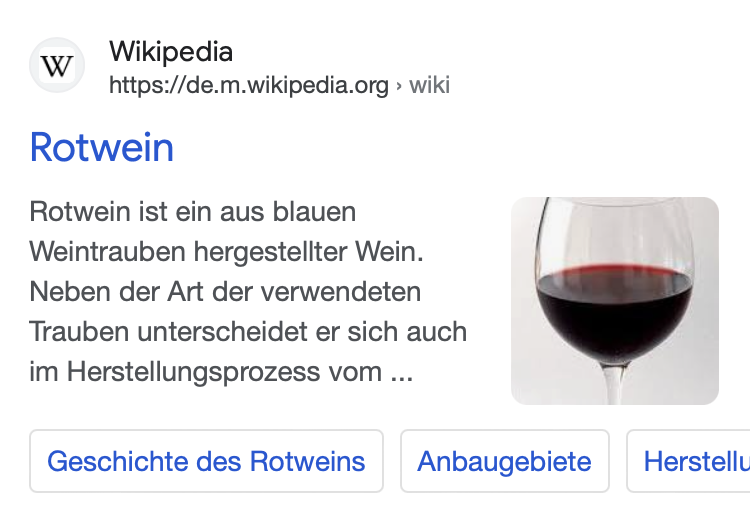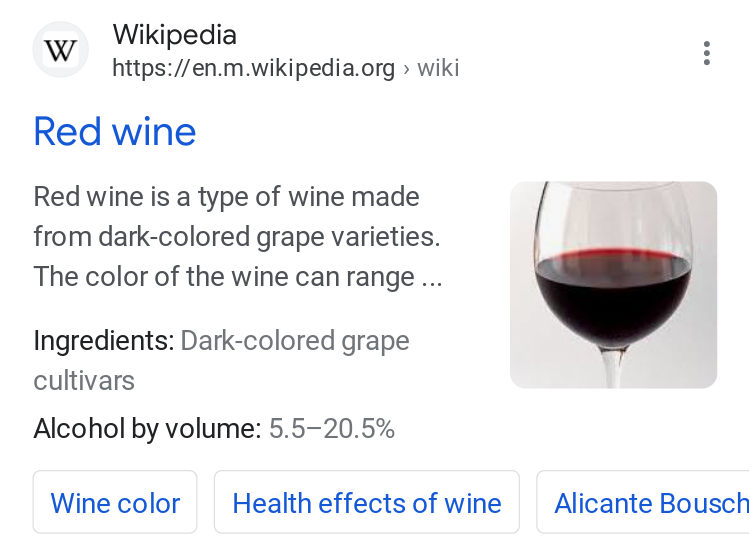Google has announced that it will change the layout of search hits in the results lists. Now, the site name has its own place above the URL. Here is a comparison of the old and new layout:


The example above is in German but the new layout can also be seen in english examples:

A short summary of the most important information on this change:
- Site name in title is omitted: Until now, Google usually displayed the site name at the end of the title tag. This is now no longer the case due to the new placement at the very beginning of the search result, as can be seen in the example of Wikipedia. This frees up a little more space in titles that can be filled with content.
- Available for German, English, French and Japanese for now: As of last weekend, these changes have already appeared in the first four languages. Google has announced that all other languages will follow in the coming weeks and months.
- Site name can be influenced with structured data: While Google is already good at recognising websites/brand names, structured data can be used to give further hints if recognition fails. Common abbreviations can also be stored in this way.
- Fallback domain name: If Google cannot identify a clear name for a site, the domain name (e.g., sistrix.com) is displayed. So if you see this in the search results for your site, it is time to incorporate structured data, but also check if you’re sending ambiguous signals in other places (Title, H1).
- Favicon (slightly) larger and with transparency: The favicon (the small logo at the top left of the search hit) is now displayed slightly larger. Therefore, Google recommends providing a minimum resolution of 48×48 pixels. Google also displays it in a grey circle now. The favicon should therefore be cropped correctly and contain a transparency channel (Wikipedia.org does not have this in the example).
- Adjustment of the desktop results will follow: Google has also announced that it will adjust the desktop results along these lines in the future. But, as is often the case with Google: the future happens on mobile phones. Desktop SERPs are now only second-class results.
- Google satire for the labelling of ads: So that this announcement doesn’t become too boring, Google has saved some satire for the final words and points out that in future, advertisements (in English-language SERPs) will be labelled with “Sponsored” and no longer with “Ads”. In this way, its high standards for the clear separation of organic hits and paid ads can be maintained. Haha!
All in all, no radical changes. But still, the adjustments show us that Google is continuing on its chosen path: URLs are becoming less important, brands are becoming more important. Therefore, it is better to invest in the popularity of your brand sooner rather than later.